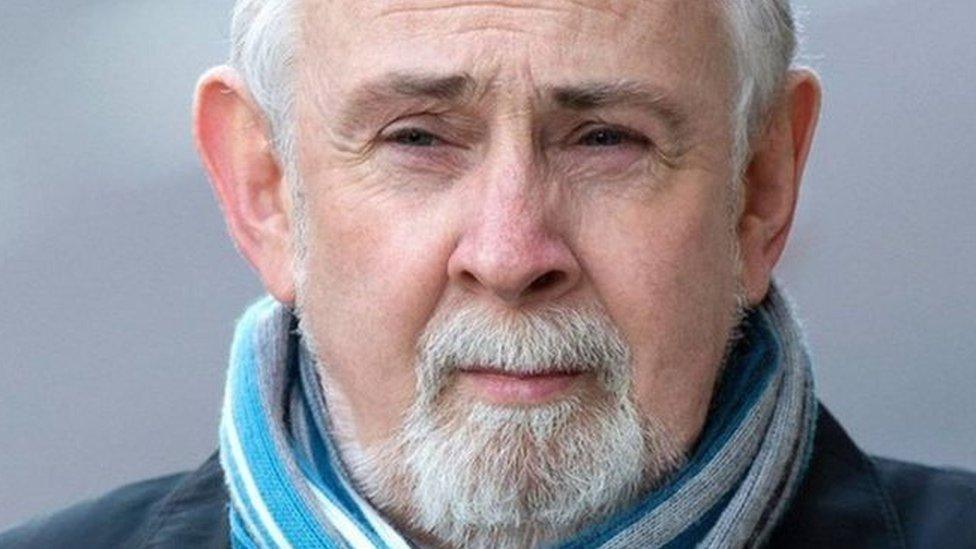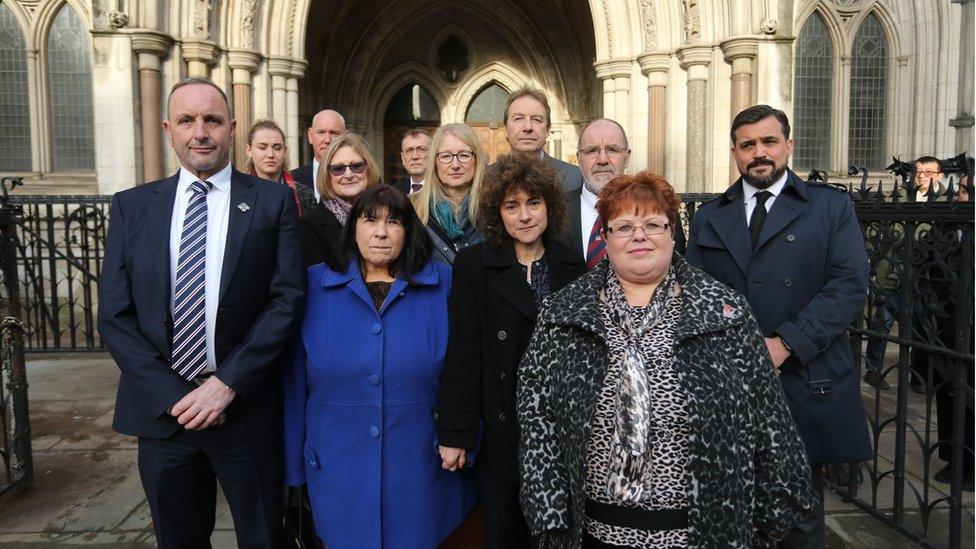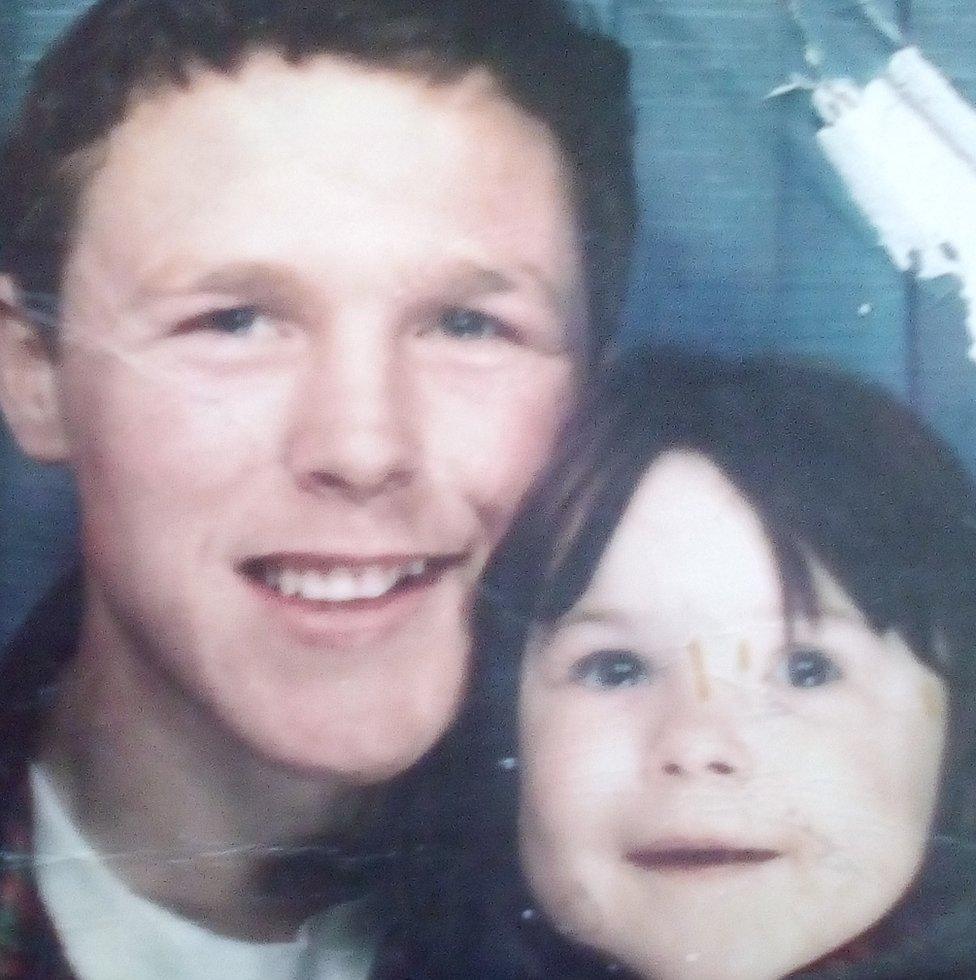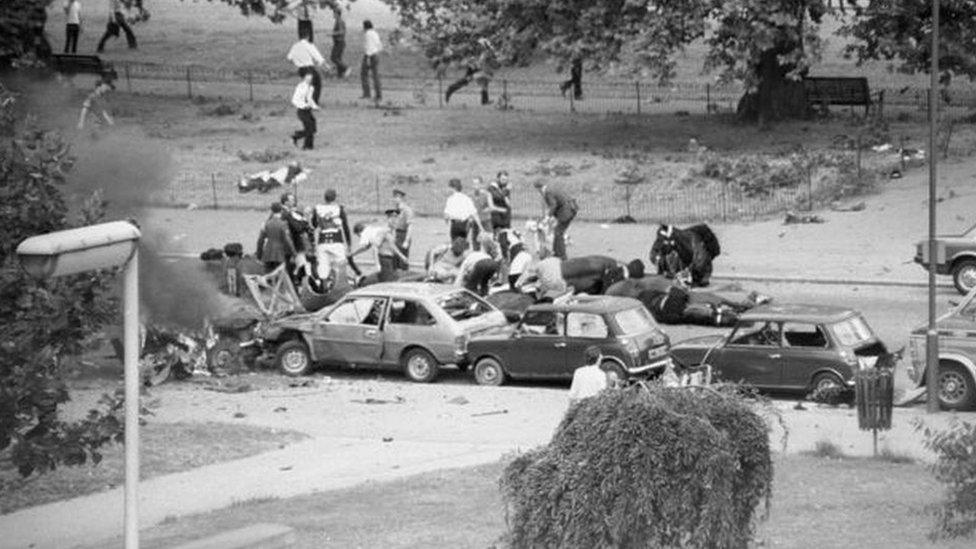John Downey 'active participant' in Hyde Park bombing
- Published

John Downey had denied any involvement
John Downey was an "active participant" in the IRA bombing at Hyde Park in 1982 which killed four soldiers, the High Court has ruled in a civil court case.
A daughter of one of the bomb victims took civil legal action against Mr Downey after the criminal prosecution collapsed almost six years ago.
Wednesday's ruling paves the way for a damages claim to be made against him.
Mark Tipper, who lost his brother in the bomb, said the victims' families had finally got "justice and closure".
His 19-year-old brother Trooper Simon Tipper died alongside Squadron Quartermaster Corporal Roy Bright, Lt Anthony Daly and L/Cpl Jeffrey Young, who was from Tonyrefail in south Wales.
As well as killing the four Household Cavalry soldiers, the explosion injured 31 people.
'The forgotten victims are finally remembered'
Fingerprint evidence
Mrs Justice Yip told the court she was satisfied Mr Downey was "an active participant" in a carefully planned attack.
The judgement was made in London following a civil action brought by L/Cpl Jeffrey Young's daughter, Sarah-Jane Young.

Mark Tipper (far left) and Sarah-Jane Young (far right) were among victims' relatives at the hearing
It followed the collapse of Mr Downey's murder trial in February 2014, when it emerged he had a guarantee against prosecution issued by the government, known as an on-the-run letter.
Announcing her conclusions in London, the judge said: "This was a deliberate, carefully planned attack on members of the military.
"I have found that the defendant was an active participant in the concerted plan to detonate the bomb, with the intent to kill or at least to cause serious harm to members of the Household Cavalry."
During evidence, the court heard 67-year-old Mr Downey's fingerprints were found on two car park tickets connected to the vehicle used in the attack.
Packed with nails
They were handed in at payment booths in the days and hours leading up to the bombing on 20 July 1982.
The bomb was packed with nails and was detonated by remote control as Household Cavalry soldiers made their way to the Changing of the Guard in Whitehall.
Mr Downey was convicted of IRA membership by an Irish court in the 1970s.
He is currently remanded in custody in Northern Ireland charged with the murders of two Ulster Defence Regiment (UDR) soldiers in Enniskillen in 1972.
Speaking outside the court after the ruling, Sarah-Jane Young's solicitor Matthew Jury said justice had finally prevailed 37 years after the killings.

Sarah-Jane Young as a child pictured alongside her father, L/Cpl Jeffrey Young
He said: "Sarah-Jane Young and the families here today were told that they would never get justice, that they should put the past behind them and move on.
"They, and thousands whose lives were devastated by the IRA, are the forgotten victims.
"Yesterday, many responsible for the most awful acts of terrorism on British soil were living out their days in peaceful retirement, believing they would never been held to account for their crimes, but justice has prevailed."
Mr Jury said the families wanted to tell other IRA victims that "no matter how many years have passed, justice can and will and must be done".

Four Household Cavalry soldiers died in the IRA's Hyde Park bomb attack as they rode to the Changing of Guard ceremony in Whitehall
'Pain'
Mark Tipper told the BBC the past few years had been "difficult" for the victims families since the criminal case was dismissed.
He said: "Today, the families have finally found what we've always wanted, which is justice and closure.
"No-one can know how much pain has been suffered over the past 37 years by all of the four families, plus the other boys who were injured that day.
"It's been a long time and it's taken its toll on the families."
Mr Downey, from County Donegal in the Republic of Ireland, did not play any part in the trial but filed a written defence denying any involvement in the attack.
The case will now progress to a second stage to determine the amount of damages to be awarded.

Who are the "on-the-runs"?
The Northern Ireland Good Friday Agreement of 1998 meant anyone convicted of paramilitary crimes was eligible for early release.
However, that did not cover those suspected of such crimes, nor did it cover people who had been charged or convicted but who had escaped from prison.
Negotiations continued after the signing of the agreement between Sinn Féin and the government over how to deal with those known as "on-the-runs".
Sinn Féin sought a scheme that would allow escaped prisoners and those who were concerned they might be arrested to return to the UK but a formal legal solution proved difficult to establish in the face of strong unionist opposition.
Against that backdrop, the IRA had still not put its weapons beyond use and Sinn Féin needed grassroots republicans to continue supporting the peace process.
